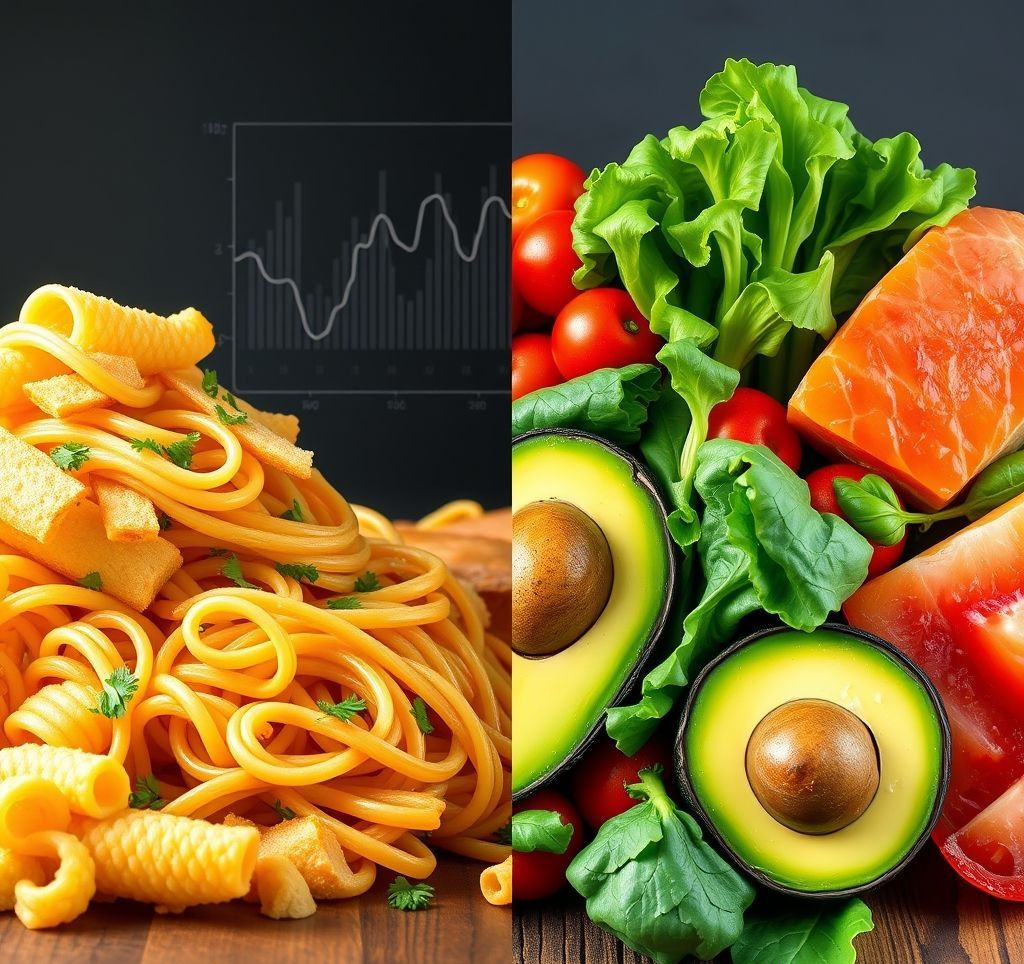Are you curious about the buzz surrounding low carbs recipes and their impact on health and weight management? It’s more than just a fad; it’s a scientifically-backed approach to nourishing your body and achieving your wellness goals. Let’s delve into the science behind low-carb diets and explore how they can be a powerful tool for improved health.
Why Low Carb is Good: Unveiling the Benefits
Understanding ‘why low carb is good’ hinges on the way your body processes different macronutrients. By shifting the primary fuel source from carbohydrates to fats, you can experience a range of positive effects:
- Weight Management: Low carbs recipes often lead to increased fat burning, as the body taps into stored fat for energy when carbohydrate intake is limited..
- Improved Blood Sugar Control: Reducing carbohydrate consumption can stabilize blood sugar levels, making it beneficial for individuals managing their glycemic control.
- Increased Satiety: High-fat and moderate-protein content in many low carbs recipes can promote a feeling of fullness, potentially leading to reduced overall calorie intake.
- Potential Cognitive Benefits: Some studies suggest that low-carb diets may have positive effects on brain function, though more research is needed in this area.
Core Principles of Healthy Low Carb Eating
Adopting a healthy low-carb lifestyle requires more than just cutting out carbohydrates. It’s about making informed choices to nourish your body with nutrient-dense foods. Here are some core tenets of healthy low carb eating:
- Prioritize Whole Foods: Focus on consuming whole, unprocessed foods such as non-starchy vegetables, lean proteins, and healthy fats.
- Choose Healthy Fats: Include sources such as avocados, olive oil, nuts, and seeds in your diet.
- Moderate Protein Intake: Ensure you are consuming adequate protein to support muscle mass and overall health.
- Limit Processed Foods: Minimize or eliminate processed foods, sugary drinks, and refined carbohydrates.
- Stay Hydrated: Water is crucial for overall health and can aid in managing appetite and energy levels.
Acco
rding to a study published in the “American Journal of Clinical Nutrition,” low-carbohydrate diets can be more effective than low-fat diets for weight loss, at least in the short term.Sample Low Carbs Recipes: A Delicious Start
Here are a few simple recipes to get you started on your low-carb journey.
- Avocado and Egg Breakfast Bowl:
- Ingredients: Avocado, egg, spinach, cherry tomatoes, salt and pepper.
- Instructions: Scramble the egg. Combine with chopped avocado, baby spinach, and halved cherry tomatoes. Season to taste.
- Cauliflower Rice Stir-Fry:
- Ingredients: Cauliflower rice, broccoli, chicken breast, soy sauce (low sodium), ginger, garlic, olive oil.
- Instructions: Stir-fry diced chicken breast in olive oil with minced ginger and garlic. Add broccoli and cauliflower rice. Stir in soy sauce and cook until broccoli is tender.
- Zucchini Noodles with Pesto:
- Ingredients: Zucchini, pesto sauce, cherry tomatoes, Parmesan cheese.
- Instructions: Spiralize zucchini into noodles. Toss with generous portion of pesto. Top with halved cherry tomatoes and grated Parmesan cheese.
Expert Tips & Best Practices
To maximize the benefits of low carbs recipes and ensure a sustainable approach, consider these expert tips:
- Track Your Macronutrients: Monitoring your carbohydrate, protein, and fat intake can help you stay within your target ranges.
- Listen to Your Body: Pay attention to how your body responds to the dietary changes and adjust as needed.
- Don’t Be Afraid to Experiment: Explore different low-carb recipes and find meals that you enjoy.
- Consult a Healthcare Professional: It’s always a good idea to consult with a doctor or registered dietitian before making significant changes to your diet, especially if you have any underlying health conditions.
“The cornerstone of a healthy low-carb diet is focusing on whole, unprocessed foods…This approach naturally reduces carb intake while providing essential nutrients and promoting satiety.” – Dr. Eric Westman, Duke University



















